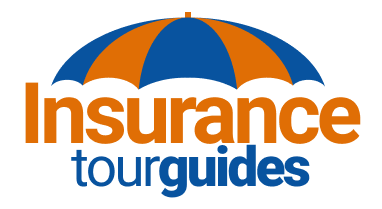Running a small business is exciting, but it comes with risks. From customer accidents to cyberattacks, one unexpected event can disrupt everything. That’s where business insurance comes in—it’s not just protection, it’s peace of mind.
Let’s break down the essential types of business insurance every entrepreneur should consider.
Why Business Insurance Matters
Whether you operate a cozy coffee shop or run an online consulting firm, business insurance shields your company from financial loss. Without it, a single lawsuit or data breach could drain your resources or even shut you down.
General Liability Insurance: Your First Line of Defense
General liability insurance is a must-have for most businesses. It covers the costs if someone sues you for bodily injury, property damage, or advertising injury (like libel or slander).
What It Covers:
-
Slip-and-fall accidents on your premises
-
Damages to a client’s property
-
Legal fees and settlements
-
Claims of defamation or false advertising
Who Needs It:
Almost every business. If you interact with customers, clients, or vendors—or advertise your services—this coverage is essential.
Professional Liability Insurance: Protecting Your Expertise
Also called errors and omissions (E&O) insurance, professional liability protects service-based businesses from claims of negligence or mistakes.
What It Covers:
-
Missed deadlines
-
Inaccurate advice
-
Professional errors or omissions
-
Failure to deliver promised services
Who Needs It:
Consultants, freelancers, accountants, designers, and anyone offering services based on their expertise.
Business Interruption Insurance: Keeping You Afloat
What happens if a fire or storm forces you to shut down temporarily? Business interruption insurance helps cover lost income and operating expenses during that downtime.
What It Covers:
-
Lost revenue
-
Rent or mortgage payments
-
Payroll and utility bills
-
Temporary relocation costs
Who Needs It:
Retail stores, restaurants, salons, and any business that relies on a physical location to operate.
Quick Comparison Table:
| Coverage Type | Key Focus | Example Scenario | Ideal For |
|---|---|---|---|
| General Liability | Third-party injuries/damage | Customer slips in your store | All businesses |
| Professional Liability | Service-related errors | Missed a tax filing deadline for a client | Consultants, freelancers |
| Business Interruption | Revenue loss from shutdown | Flood forces you to close for two weeks | Brick-and-mortar businesses |
| Cyber Insurance | Digital threats | Hacker steals customer credit card info | Online businesses, all with data |
Cyber Insurance: Digital Risk Management
In today’s world, every business stores some data—whether it’s customer emails or credit card info. Cyber insurance helps manage the financial fallout from data breaches, cyberattacks, and network failures.
What It Covers:
-
Costs of notifying affected customers
-
Credit monitoring services
-
Ransomware payments
-
Legal fees and fines
Who Needs It:
Anyone who handles digital customer data. That includes e-commerce stores, tech startups, even small businesses with online booking or payment systems.
How to Choose the Right Policies
Every business is unique. The right mix of insurance depends on your industry, size, number of employees, and how you interact with customers.
Factors to Consider:
-
Business size and revenue: Larger operations may need higher coverage limits.
-
Industry risks: A construction company faces different risks than a wedding planner.
-
Data exposure: The more customer information you store, the more you need cyber protection.
Tip:
Bundle multiple coverages under a Business Owner’s Policy (BOP) for convenience and cost savings. A BOP often includes general liability, business property, and business interruption coverage.
How Much Does Business Insurance Cost?
Costs vary based on coverage type, limits, location, and risk level. Here’s a general idea:
| Insurance Type | Average Monthly Cost | Key Factors Affecting Cost |
|---|---|---|
| General Liability | $30–$70 | Industry, claims history, business size |
| Professional Liability | $50–$100 | Services offered, risk level |
| Business Interruption | $40–$130 | Revenue, location, policy length |
| Cyber Insurance | $75–$150 | Data exposure, security measures |
Note: These are estimates; premiums can be higher or lower based on your specific profile.
When Should You Get Business Insurance?
The best time? Before you need it. Many landlords, clients, and licensing boards require proof of insurance before you can start work. Others won’t sign contracts without it.
Waiting until something goes wrong can be a costly mistake—insurance won’t cover events that occurred before the policy was active.
Don’t Go It Alone
Business insurance can be complex, and the stakes are high. Working with an experienced insurance agent or broker can help you understand your options and tailor a policy to your exact needs.
Wrapping It Up
Business insurance is like a safety net for your company’s future. From liability claims to cyber threats, it helps keep your business running smoothly even when the unexpected happens. Understanding your options—and getting the right coverage—can make all the difference when things don’t go as planned.

